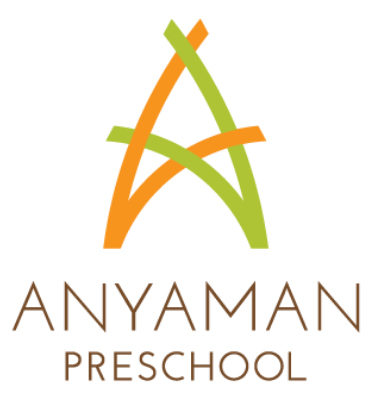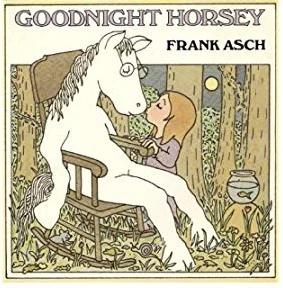Around the world, little girls receive the message each day in obvious and subtle ways that their preferences and their voice matter less than being polite, pleasant, compliant and accepted. On International Women’s Day, we celebrate women, but more than ever, we acknowledge the need to reflect deeply on the way we raise our little girls (and boys!). So much more than encouraging women to lean in, speak up, and take the reins, we need to go back to where it begins and thoughtfully, intentionally, wilfully, against the odds - raise women who are strong and secure in their identity as powerful and valuable beings.
Alongside many now in my generation, I feel a pressing burden and privilege to build a world where my child and all children, like Frederick, can stand tall in the knowledge that they are valuable intrinsically. I look forward to a day when, secure in this knowledge, all children are free to become their best selves and to create beautiful, meaningful work, visible or invisible.
Wilfrid Gordon takes us by the hand and helps us to fearlessly turn towards the vast gaps left by modern medicine’s approach to ageing. His solution is temporary, but it is one that places power in the hands of a very young child, honours the dignity of a very old woman and challenges us to reimagine the kind of end of life care that we want to offer our vulnerable but valuable aged citizens.
Oliver Sacks, the British neurologist and naturalist, once said that “the love of nature and living things, is an essential part of the human condition.” The truth of this statement is apparent when observing children, who retain an increasingly fragile connection to ancient ways of being that our modern, frenzied world has largely rejected. This powerful and indeed, spiritual wisdom that they so effortlessly offer us is perhaps the key (on our doorstep!) to the slower, deeper living so many of us are searching for.
Over time, the neighbourhood I grew up in has become wealthier, more developed, with improved roads and infrastructure. But as we have become richer economically, we are undisputedly experiencing a poverty of nature, of community, and of belonging. Jeannie Baker’s masterpiece provokes deep thinking about the environments we want to live in and to leave behind, and invites us to reimagine the possibilities.
My father read this book to me as a child. It has been 8 years now since he passed away, but when I picked this book up again, I wept like it was only yesterday.
On a personal level, having taught children in both traditional and emergent curriculum settings, I have found it to be an incredible privilege to teach using the emergent curriculum approach. I have been able to observe firsthand how this type of system allows children to become co-creators in their learning, rather than passive recipients of an adult-driven agenda.
Our Small Books, Big Ideas workshop is back! In this intimate workshop, participants will delve into the fundamentals of quality picture books. In today’s world of screen dominance and heavily commercialised children’s literature, developing a critical eye to curate an intentional collection of quality books for our children is of vital importance.
In this workshop, participants will:
Learn, through examples, to recognise the elements and techniques used in high quality picture books
Explore techniques and skills to read books in a way that provokes deep thinking and a lifelong love of books
Examine and discuss examples of books that address challenging but important topics, such as gender inequality and violence
This workshop is suitable for parents and teachers reading with young children or children with learning differences.
Workshop Description
At what age should children learn to read? How do I cultivate a love of reading in my child? Should I sign up for phonics? If I don’t, will my child fall behind in school?
Children around the world are under intense and increasing pressure to demonstrate reading abilities at earlier and earlier ages. As a result, parents and teachers often feel obliged to push direct reading instruction at the expense of many other essential developmental goals, including the socio-emotional, physical and cognitive needs of young children.
In this workshop, participants will
Explore reading strategies that are frequently employed by strong adult readers
Examine the research on the development of language and literacy in young children
Discuss the implications of this on how we approach reading instruction
Develop practical strategies for the home and classroom that are designed to cultivate reading in a developmentally appropriate, holistic and joyful way that honours and protects childhood
About the Facilitator
Joanna Lim holds a Master of Education in Learning and Teaching from Harvard University, where she studied under Professor Catherine Snow, a pioneer in the field of language development. She previously worked at Hils Learning, teaching a variety of children experiencing reading difficulties, and has also taught reading courses for adults, based on the Harvard Reading Strategies course. She believes that with intentional strategies and practice, deeper literacy is a lifelong journey that is achievable for all.
Everyone has the right to feel safe, all of the time. What can we do as a community to ensure that children are able to enjoy a happy, safe and fulfilling childhood? There is increasing awareness of the importance of personal safety for young children. However, several common misconceptions hinder many parents from effectively addressing this topic:
Misconception #1: This will never happen to my child
Fact: Child abuse and neglect occur in all types of families, no matter the income, education, family size, race, religion, or any other trait
Misconception #2: Strangers are more likely to harm my child
Fact: Over 90 percent of perpetrators are someone the child knows and trusts
Misconception #3: Child abuse is only abuse if there are visible signs
Fact: Child abuse can take the form of physical, sexual, or emotional abuse, and can often be subtle and nuanced, leaving behind no physical traces. There is often considerable variation in the definition of what constitutes abuse
Misconception #4: Children usually tell someone if they are being abused
Fact: Most abuse victims either delay or never disclose child abuse to friends, family or the authorities. Only one in ten children tell anyone
Misconception #5: I’m already overly cautious and doing enough to protect my child from harm
Fact: In addition to adult protection, children need skills and tools based on confidence and resilience rather than fear, which empowers them to protect themselves when we are not able to be there with them
This workshop will begin by providing participants with a safe space to explore the essence of child rights, especially a child's right to protection. Participants will then draw from their own knowledge and experiences to unpack the nuances of child abuse. We will then delve into the short and long term effects of violence and abuse, common signs to be aware of, and explore practical next steps towards a safer world for our children.
This workshop is applicable to teachers, parents, women’s aid workers, the police, social workers, youth workers, medical professionals and community workers. Students, government and NGO employees are entitled to a 50% discount. Registration will be open soon! To sign up, please email admin@anyamanpreschools.com.
About the Trainer:
Thency Gunasekaran is a passionate advocate for the rights of children and their families and is one of the leading experts on child protection in the nation. She was also a pioneering team member at Anyaman Preschool. Thency has extensive experience conducting workshops for young children, parents, teachers and social welfare officers that raise awareness of child rights and child protection. She has conducted training in countries such as Kyrgystan, Lebanon and South Korea, while within Malaysia, she has trained for various organisations including Jabatan Kebajikan Malaysia as well as Selangor Legal Aid. Thency is fascinated by the complexities of the human mind, and strongly believes that education is a vital element in the discussion on human rights and democracy. She holds a Master of International Studies from Ewha University, Korea, and a Bachelor's degree in International and Strategic Studies from Universiti Malaya.








